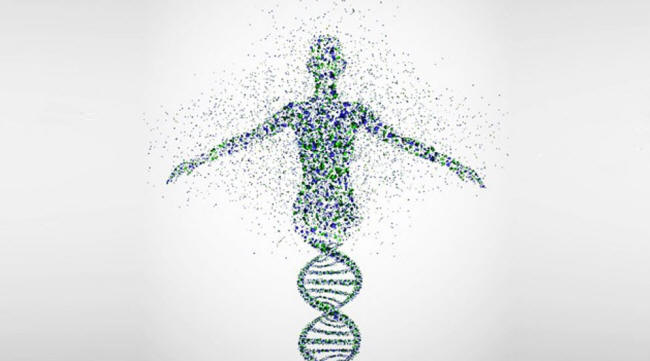|
What do these discoveries
mean for a species increasingly facing environmental and political
calamity?
Most recently, a team of researchers with Tufts University has found evidence which suggests stress or mistreatment during childhood can lead to genetic changes which are passed down to the victim's children and grandchildren.
Larry Feig and his team have shown that inducing stress on mice can lead to genetic changes which are imprinted on the sperm.
This same effect has been found in male humans as well.
Feig's study, "Reduced Levels of miRNAs 449 and 34 in Sperm of Mice and Men Exposed to Early Life Stress," published in Translational Psychiatry, asked 28 men to provide a sperm sample and complete the Adverse Childhood Experience (ACE) questionnaire.
The questionnaire is designed to determine the degree of abusive and/or dysfunctional family experiences an individual experience as a child. These experiences increase the risk of developing future psychological and physical disorders.
The researchers also began looking for evidence of small molecules called micro-RNAs.
This alteration by micro-RNA can lead to epigenetic changes which are apparently passed on to offspring along with the genes themselves. This means an individual's life experiences can have an effect on their children.
Upon screening the men's sperm the researchers found two types of micro-RNAs, ..were as much as 100 times lower in samples from abused men.
The team also purposefully stressed mice by moving them to new cages with new mice throughout their childhood.
The researchers found that stressed male mice also had lower levels of miR-34 and miR-449 in their sperm. Even upon mating with unstressed females the embryos had similarly low levels of the two micro-RNA.
The sperm from the male offspring also had the same low levels.
These changes were found in the following generations even when they had not experienced any abuse or stress themselves.
The new study also indicates that female offspring of stressed male mice will likely be more anxious and less sociable. These results show that the effects last for at least three generations.
The researchers plan to do the study again with a larger group of men and possibly other family members.
So what exactly is Epigenetics?
'What is Epigenetics?', defines the term as,
As the Tufts University study has shown, these genetic changes were passed down via sperm and embryo to the following generations even without being exposed to the same trauma as the parent or grandparent.
Epigenetics currently sits on the fence between accepted mainstream science and New Age panacea.
Scientists who have been hesitant to admit that genes are not static are being forced to rethink their positions, while spiritualists and believers in the law of attraction swear that epigenetics proves that our state of mind directly determines our physical health and body.
While the research has been taking place for decades, it is only now coming to be understood that our individual experiences and environmental factors can change us on the genetic level.
This could come from not only psychological or emotional trauma, but also outside factors like chemicals in our environment.
In a 2006 article (Epigenetics - The Science of Change) published in Environmental Health Perspectives, researchers write,
This reemphasizes the need for a healthy lifestyle and diet free of tobacco smoke, hormones, heavy metals, and pesticides.
In addition, in 2005, Michael Skinner, a professor of molecular biosciences and director of the Center for Reproductive Biology at Washington State University, showed that pregnant rats exposed to high levels of the insecticide methoxychlor lead to decreased sperm production and increased male infertility in the male children.
Skinner and team also found DNA alteration with two genes. Even in the absence of additional pesticide exposure, these adverse effects lasted in about 90% of the males in the following four generations.
In February of this year, researchers from Washington State University studied the epigenetic effects of the now-banned pesticide DDT. The team found that a wide range of epigenetic changes resulted from DDT exposure to mice across three generations.
Researchers are beginning to believe that these epigenetic changes may be "remembered" through a phenomena known as transgenerational inheritance.
As 'What is Epigenetics?' notes,
I believe an understanding of epigenetics should encourage every individual to rethink the way they live their very lives.
With epigenetics in mind, we should rethink the way we treat children and the way we communicate with other people, in general.
I am a firm believer in peaceful parenting and the fact that hitting children can affect their level of gray matter in the brain, but it also likely causes stress that leads to epigenetic changes, possibly even negative health effects.
In addition, learning to use tools like non-violent communication can be a great way to learn to connect with someone in a respectful and compassionate, but firm manner without causing unnecessary harm or frustration.
|


